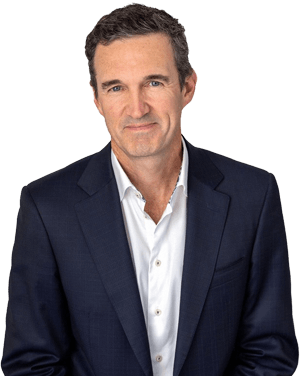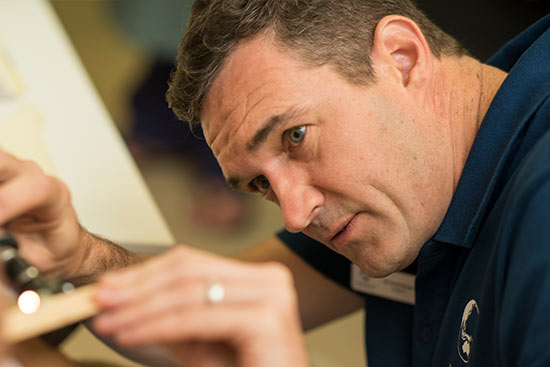Breast Reduction (Reduction Mammaplasty)
Large and heavy breasts can cause neck, back, and shoulder pain, as well as difficulties with exercise, and the potential for rashes and infections beneath the breasts. Some women can also feel very self-conscious of a large bust.
What is breast reduction (reduction mammaplasty) surgery?
As the name suggests, breast reduction surgery is designed to reduce the bulk and weight of the breast. Large and heavy breasts can result from excessive growth during puberty, from the changes associated with pregnancy and breast-feeding, and as a consequence of menopause or general weight gain.
A heavy bust can lead to a range of symptoms that women have to manage on a daily basis, including pain, difficulty with bras, clothing and exercise, and occasionally increased discomfort during the menstrual cycle.
Breast reduction surgery not only reduces the overall breast size, but also elevates the breast into a more comfortable position on the chest.
What are the benefits of the procedure?
Large breasts can be a significant burden for many women. They can cause neck and back pain, shoulder pain from bra straps, problems with rashes and infection beneath the breasts, difficulty with exercise and attempts at weight loss, and problems finding correctly fitting bras and clothing, especially if the breast size is out of proportion to the rest of the body.
These symptoms are a daily concern, and so breast reduction surgery can therefore result in a tremendous improvement in a woman’s daily comfort and quality of life. This is a medically indicated procedure, due the nature of the symptoms, and is not considered cosmetic surgery, although there can be some improvement in the appearance of the breast.
Most women seek a consultation for this surgery after hearing about its benefits from a friend or acquaintance that has undergone the surgery, because they can be so profound.
Is Mr Morgan experienced in breast reduction (reduction mammaplasty) surgery?
Mr Morgan has had many years of experience in performing breast reduction (reduction mammaplasty) surgery. He has also undertaken additional training overseas in breast surgery techniques, allowing him to bring both an experienced artistic and technical viewpoint to these procedures. With a passion for this type of surgery, you can be assured that your surgeon is not only experienced and qualified, but also dedicated to achieving results. Mr Morgan and his team pride themselves on providing a warm and welcoming environment, and will take the time to listen to your individual needs and concerns.
At your consultation, he will be able to show photos of his other patients who have undergone this procedure to give a sense of what change can be achieved. These results are specific to these patients, and may not accurately reflect the types of result you may achieve. All results can vary for a number of reasons, including differences in genetics and original appearance, as well as differences in healing and recovery. Despite all care being taken, complications can and do occur, and can also affect the final result. Occasionally, revisional surgery is required.


How is it performed?
Breast reduction (reduction mammaplasty) surgery is performed under general anaesthesia and requires a hospital stay of one or two nights. All types of breast reduction surgery result in scarring on the breasts, but this is designed to be camouflaged in skin creases and around the areola as much as possible. The extent and placement of these scars will be determined on an individual basis, depending on the amount of reduction required, and the quality of the skin and breast tissue that remains. Sometimes liposuction can be performed as an additional procedure to provide the finishing touches and achieve the best result. These options will be discussed with you during your consultations.
The wounds are all closed with dissolving sutures, and the wounds covered with waterproof dressings so that you may shower as soon as you feel comfortable. When you wake, you will also be wearing a soft surgical bra that will help with comfort. It will also minimise swelling and bruising and help in your recovery.

How long will I need to recover?
Everyone will have a different experience and will recover from their surgery differently. Although uncommon, complications can also occur and can result in a longer recovery time. Generally, discomfort is limited and well-controlled with tablet pain relief medication. You will initially sleep on your back for the first couple of weeks, and may sleep propped up on a few pillows to make this easier. Your breasts will swell and become bruised in the first few days, before beginning to recover. Often, the breasts can feel a little numb, or over-sensitive, due to nerve irritation during the recovery phase. This is usually temporary, but permanent changes in the nerves of the breast can occur.
Gentle walking is encouraged as soon as you feel well. Typically, most patients will recover enough to return to social activity and office-based work after two to three weeks. Return to exercise is allowed from four weeks, and activity is usually unrestricted after six weeks. Swelling can often persist for many weeks after surgery until the final size and shape of the breasts becomes apparent.
Specific Risks and Complications
Breast augmentation surgery has several potential specific risks:
- Bleeding, infection, poor quality or visible scars, prolonged wound healing, asymmetry, permanent numbness in the breasts or nipples, dissatisfaction with the cosmetic outcome, need for revisional surgery
- This is not an exhaustive list of potential risks. Every patient responds differently to surgery and anaesthesia, and can heal and recover differently. Individual results can vary. The results experienced by one patient do not always reflect the results other patients may achieve. Potential outcomes and possible variations will be discussed during your consultations.
All Surgical Procedures Carry Risks
Before proceeding, you should seek a second opinion from an appropriately qualified medical practitioner.
Individual results may vary due to a number of factors, including genetics, and variations in healing and recovery, and the potential for complications. The outcomes experienced by one person do not necessarily reflect the outcomes that other people may experience. Potential outcomes and possible variations will be discussed during your consultations
Cosmetic surgery is real surgery, and will most often require a general anaesthetic. All surgery will require a period of recovery before returning to normal activity, as outlined in the particular procedure information. Although uncommon, complications can and do occur, and may affect the final result of your surgery. The potential risks will be discussed fully during your consultations, and you will have the opportunity to ask questions about the various risks in your particular circumstances. Risks may include the general risks of surgery, as well as the risks specific to the procedure, and include poor quality scarring, excessive bruising and swelling, infection, bleeding, pain, asymmetry, nerve injury, anaesthetic complications, drug reactions, unsatisfactory cosmetic outcomes, the need for further surgery, and permanent disability and death.
As a specialist plastic surgeon, Mr Morgan is appropriately trained and qualified to deal with complications of surgery, including the ability to admit you to hospital, if required.
Who should/should not consider breast reduction (reduction mammaplasty) surgery?
Breast reduction (reduction mammaplasty) surgery is highly recommended for those women who are physically affected by the size of their breasts. This treatment can be the solution for back and neck problems. Patients should avoid this type of surgery as a response to another individual’s preference; breast surgery is about your body and your needs. Any decision to undergo plastic surgery needs to be for the right reasons. We believe that being healthy and happy with your decision will increase the chances of achieving a satisfactory result. Smoking, a number of other medical conditions and being overweight can make surgery unsafe; however these and other risks will be discussed with you at the time of your consultation.
Breast Reduction (Reduction Mammaplasty) Surgery
If you would like to know more about how Mr David Morgan, and his team, can help you, please contact us today.
